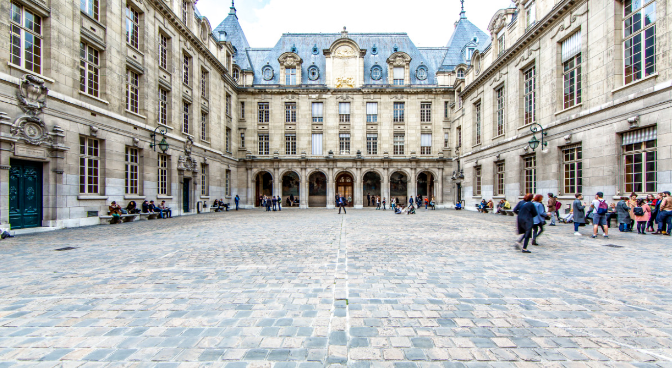
Study in France
France is one of the most popular destinations for international students, known for its prestigious institutions, rich cultural heritage, and affordable education system. With a blend of academic excellence, vibrant student life, and opportunities to explore history, art, and cuisine, France offers a unique and enriching study experience.
Why Study in France?
Prestigious Academic Institutions
France is home to some of the world’s top universities and business schools, such as the Sorbonne University, Sciences Po, HEC Paris, and INSEAD.
Its education system emphasizes critical thinking, creativity, and innovation.
Affordable Education
Public universities in France have low tuition fees, with most programs costing only a few hundred euros per year for EU and non-EU students.
The French government heavily subsidizes higher education.
Diverse Range of Programs
Students can choose from a variety of programs taught in French and English across fields like arts, humanities, sciences, and business.
Cultural and Historical Richness
France’s rich culture and history make it a fascinating place to live and study.
Students can explore iconic landmarks like the Eiffel Tower, Louvre Museum, and Château de Versailles.
Strong Global Networks
France’s universities and grandes écoles have strong connections with industries and global academic networks, enhancing career prospects.
Structure of Higher Education in France
Universities
Offer academic programs across various disciplines, focusing on research and theoretical learning.
Ideal for undergraduate, master’s, and doctoral studies.
Grandes Écoles
Elite institutions offering specialized education in fields like engineering, business, and public administration.
Highly selective, with rigorous admission processes.
Technical Institutes and Polytechnics
Offer career-oriented programs and vocational training in technical fields.
Business Schools
France is renowned for its business schools, which rank among the best globally, such as ESSEC and EDHEC.
Popular Fields of Study
Fashion and Luxury Management
Business and Management
Arts and Design
Engineering and Technology
Political Science and International Relations
Admission Process
Research and Program Selection
Use platforms like Campus France to explore programs and institutions that suit your interests.
Application Requirements
Academic transcripts, letters of recommendation, personal statement, and a CV.
Proof of language proficiency: DELF/DALF for French programs or IELTS/TOEFL for English programs.
Application Process
Apply directly to universities or via Parcoursup for French students.
International students can often use the centralized Campus France application system.
Visa Process
After acceptance, apply for a long-stay student visa (VLS-TS) to study in France.
Cost of Studying in France
Tuition Fees
Public universities: €170–€380 per year for bachelor’s and master’s programs.
Grandes écoles and private institutions: €3,000–€30,000 per year.
Living Expenses
Estimated €10,000–€15,000 annually, covering accommodation, food, transportation, and personal expenses.
Major cities like Paris are more expensive, while smaller cities offer a lower cost of living.
Scholarships
Scholarships are available through the French government (e.g., Eiffel Excellence Scholarship), universities, and external organizations.
Student Life in France
Campus Facilities
Universities offer modern facilities, including libraries, sports centers, and student organizations.
Cultural Immersion
Students can experience French art, music, cuisine, and festivals.
Learning French enhances integration into the local culture and career prospects.
Travel Opportunities
France’s central location in Europe allows for easy travel to neighboring countries.
Work and Immigration Opportunities
Work During Studies
International students can work up to 964 hours per year (about 20 hours per week).
Post-Study Opportunities
After graduation, students can apply for a temporary resident permit (APS) to seek employment or start a business.
Pathway to Permanent Residency
Skilled graduates may transition to long-term residency or citizenship after gaining work experience in France.
Challenges for International Students
Language Barrier
While English-taught programs are available, learning French is essential for everyday life and accessing more opportunities.
Cost of Living in Major Cities
Cities like Paris can be expensive, requiring careful financial planning.
Administrative Processes
Navigating French bureaucracy for visas and registrations can be time-consuming.
Conclusion
France offers a perfect mix of academic excellence, cultural richness, and affordable education. Its globally recognized degrees, diverse programs, and vibrant student life make it a prime destination for international students seeking quality education and unforgettable experiences.
